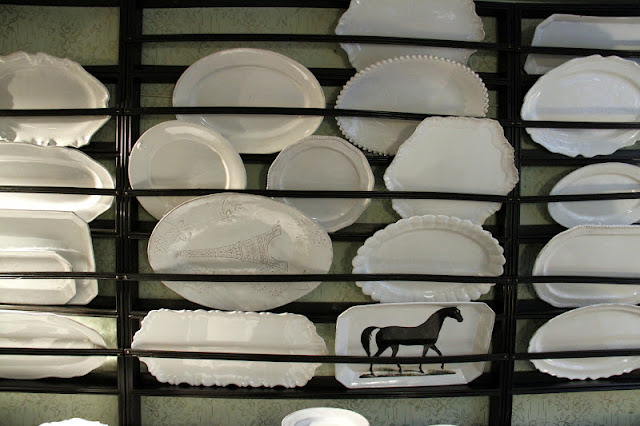The shop is perhaps best known for its 18th- and 19th-century inspired handmade ceramics. They use black terracotta to make the tableware and finish it with a milky glaze. The pieces are thin and appear to be quite delicate, but are actually known for being extremely durable and they are also microwave and dishwasher safe. The organic shapes add to that earthly, elegant feel.
Somehow you sense that there is more to this shop than just beautiful pieces well displayed. The answer is tradition, although the shop was only founded in 1996. A team of twenty ceramicists makes pottery in the very same way that one of the owners, Benoît Astier de Villatte, was taught by his father. All their products are created in a Bastille workshop that used to house Napoleon’s silversmith.
Astier de Villatte is also making a name for themselves with their high-end scented candles named after cities and interesting sites around the world. With their own range of beauty products, including eau de parfums, and few pieces of antique furniture, silverware and glassware, you might as well move in!
Astier de Villatte
173 Rue Saint-Honoré
75001
Paris
Image credits: All photography by me













I will consider the social, economic and political factors of Astier De Villatte. Advancments in Astier De Villatte can be linked to many areas. While it has been acknowledged that it has an important part to play in the development of man, it is impossible to overestimate its impact on modern thought. Crossing many cultural barriers it still draws remarks such as 'I wouldn't touch it with a barge pole' and 'i'd rather eat wasps' from the upper echelons of progressive service sector organisations, many of whom blame the influence of television.
ReplyDelete